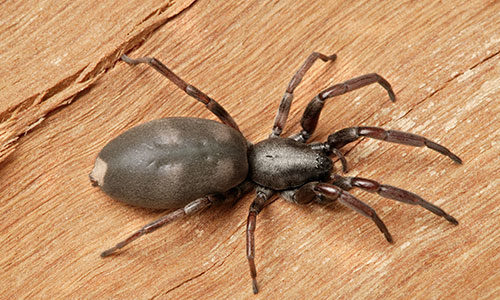While most common spiders in New Zealand homes are harmless, their presence indoors can be unsettling. Whether it’s the sight of cobwebs in a quiet corner or an unexpected guest scurrying across the floor, many homeowners want to know the best ways to keep spiders out—especially as seasonal changes affect their behaviour.
This guide offers practical spider prevention tips for New Zealand households, helping you take action throughout the year with both natural methods and professional support.
When Are Spiders Most Active in New Zealand?
Spider activity in New Zealand fluctuates with the seasons, so knowing when they’re likely to appear can help you stay a step ahead.
- Spring and Summer: This is peak activity time. Spiders become more visible as they search for mates and food, often wandering indoors or becoming more active at night.
- Autumn: As temperatures begin to drop, some spiders retreat indoors in search of warmth and shelter.
- Winter: Many spiders become less active or go into hiding, but some, like the white-tailed spider, remain mobile indoors.
Understanding these patterns can help you adjust your spider-proofing strategy throughout the year.
What Are the Common Spiders in New Zealand Homes?
While New Zealand is home to thousands of spider species, only a few are commonly found indoors. These include:
- White-Tailed Spider: Known for its painful bite, often found in bedrooms and bathrooms.
- Daddy Long Legs: Harmless and helpful in reducing other insect populations.
- Black House Spider: Common in window frames and crevices.
- Huntsman Spider: Large and fast, but not dangerous.
Knowing which spiders are likely to appear can reduce unnecessary panic and guide your spider prevention efforts.
How to Keep Spiders Out of Your Home
If you’re wondering how to keep spiders out, here are tried-and-tested strategies that work across all seasons:
- Seal Entry Points: Use silicone caulking to close up gaps around windows, doors, and vents.
- Eliminate Clutter: Spiders love hiding in dark, undisturbed places like garages, basements, and storage rooms.
- Regular Vacuuming: Vacuuming webs, egg sacs, and corners reduces potential nesting areas.
- Reduce Insect Populations: Spiders follow their food—other insects. Use general pest control to reduce the spider’s food supply.
- Turn Off Outdoor Lights: Lights attract insects, which then attract spiders. Switch to motion-sensor lights or use yellow-tinted bulbs.

Are There Natural Ways to Deter Spiders?
Yes! If you prefer chemical-free methods, consider these natural spider deterrents:
- Vinegar Spray: Mix equal parts white vinegar and water to spray on window sills and corners.
- Essential Oils: Spiders dislike peppermint, eucalyptus, and tea tree oils. Dilute in water and spray around entrances and storage areas.
- Citrus Peels: Rub lemon or orange peels along skirting boards and windowsills.
While these won’t eliminate a spider problem entirely, they can support your spider prevention strategy.
What If You Already Have a Spider Problem?
If spiders are frequently appearing indoors, it may be time to contact a professional spider control service in NZ. Flick offers safe, tailored treatments that go beyond DIY methods to:
- Inspect for entry points and high-risk zones
- Treat active spider populations with environmentally responsible products
- Target the underlying insect populations attracting spiders
- Provide long-term prevention with follow-up treatments if needed
FAQs
How do I spider-proof my home naturally?
Use peppermint oil spray, seal cracks, and vacuum regularly to remove webs and prevent nesting.
When are spiders most active in New Zealand?
Spiders are most active during the warmer months—spring and summer—when they breed and hunt more often.
Are spiders in NZ dangerous?
Most aren’t, but white-tailed and katipo spiders can bite. Their bites are rarely serious but can cause discomfort.
What’s the best way to get rid of spiders in my house?
Combine prevention (sealing and cleaning) with professional pest control for the best results.
Get Professional Spider Control in New Zealand
While DIY methods can help with occasional sightings, consistent spider activity is a sign you may need help. Flick’s spider control specialists provide thorough inspections and long-lasting solutions to give you peace of mind, no matter the season.
Contact Flick today to schedule your spider inspection and take the first step toward a safer, spider-free home.
Enjoyed this article?
If you found this article helpful, sign up for our free Quarterly Newsletter to receive all our tips and tricks on pest control and disinfection.
Sign Me Up!Book A Service Now
Book us for an inspection today and safeguard your home!
